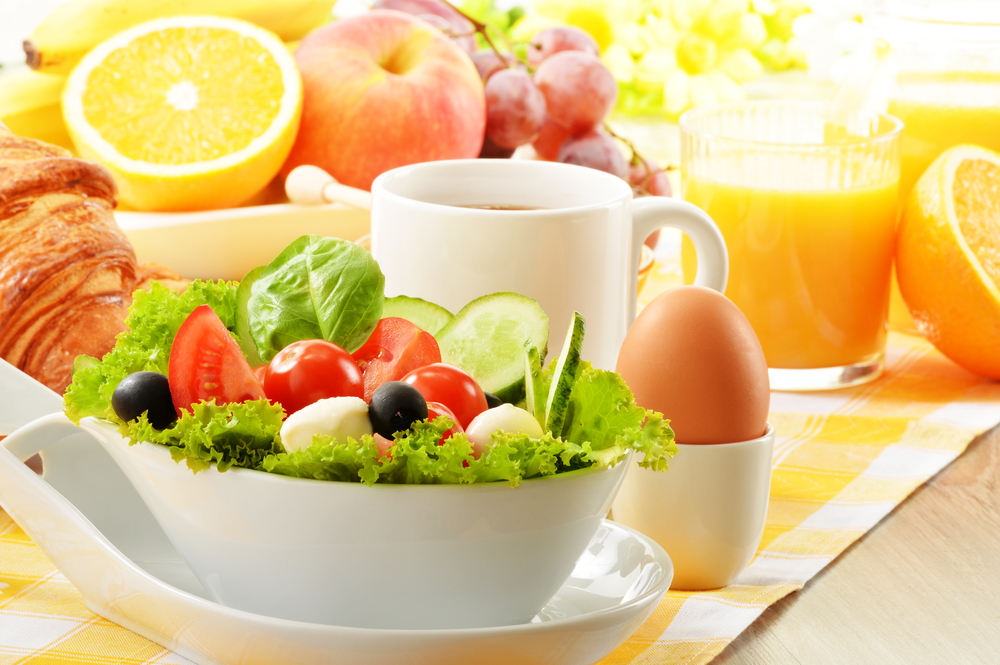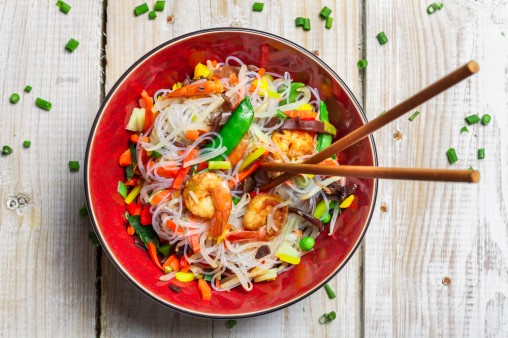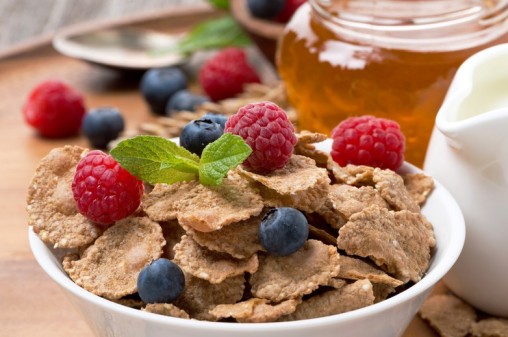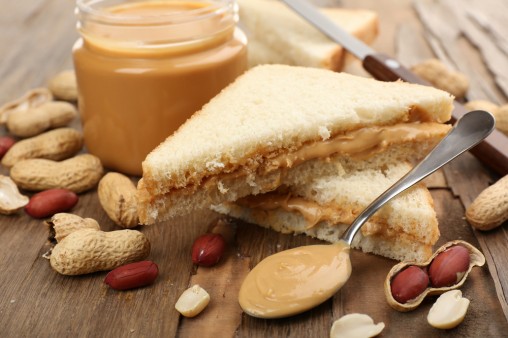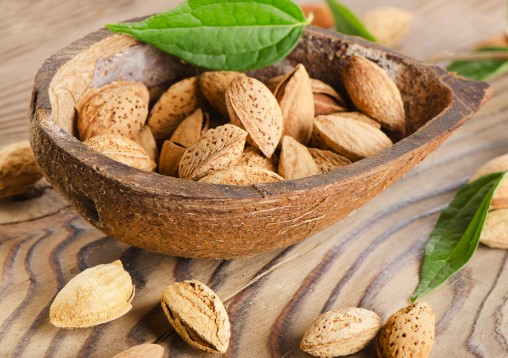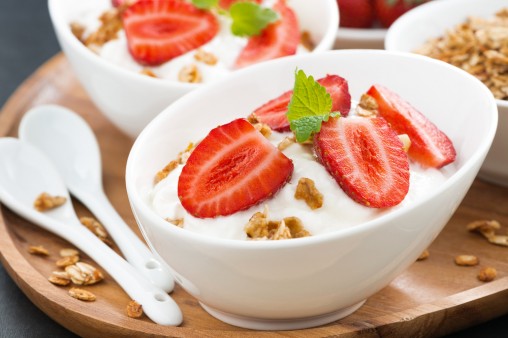Does what you eat make you smarter? There are indeed foods that can make your brain run better, and enhance your memory and alertness.
While you shouldn’t depend solely on food to keep your brain healthy, snacking some of the following will help you build a mammoth mind and a massive memory. Discover real food for thought.
It’s been a month since I started doing a student exchange program, far away from my native country. Every day at home I used to enjoy delicious meals my mom prepared for me. Lots of fresh veggies and fruits were on the menu. I wasn’t thinking much about my diet as I knew everything in my plate was healthy and nutritious, boosting my energy level and providing all the necessary vitamins for my bodily functions.
However, a few days ago I was at a student canteen, where I was hoping to find something similar for lunch. The options were numerous – there was Chinese and Mexican food, burgers, various sauces and cookies”¦ Everything seemed tasty, but probably not so nutritious. What are the foods school children and students should incorporate into their diet each day in order to make healthy eating choices, be able to concentrate better at classes and perform well at school or college?
Breakfast Is the Most Important Meal of the Day
It is required that we kick-start our day with a good and healthy breakfast. Having breakfast is like fuelling the car with the right petrol to start it off. Without a proper fuel, our bodies and minds go to sleep mode, thereby affecting our concentration levels which might have a drastic effect on our work outcomes. You need to have a breakfast that provides you with sufficient amount of energy to go through the morning hours. While adults need to eat breakfast each day to perform their best, the kids need it even more. Their growing bodies and developing brains need regular refuelling. Studies have shown that kids who skip breakfast are tardy and absent from school more often than children who eat breakfast on a regular basis. Preparing a good breakfast can be as quick and easy as splashing some milk over cereal, or making an oatmeal or a healthy smoothie.Here are a few simple ways how you can achieve king sized nutritional breakfast.
Oatmeal is a rich source of fibre, protein and omega-3 fatty acids, it reduces the “bad” cholesterol that can increase risk of heart attacks and strokes. In addition, oats have low glycaemic index (GI), and thus release glucose gradually into the bloodstream. The blood glucose response is slower and flatter. As low GI foods they prolong digestion due to their slow break down and may help with satiety (feeling full).
If you are serving old-fashioned slow-cook oatmeal, sprinkled in pecans, hazelnuts, almonds or fruits such as prunes, raisins, peaches, strawberries, mango and pears, sweeten it with a little brown sugar or honey, or add some peanut butter.
If you are fond of peanut butter, here are some ideas for your healthy breakfast:
- Whole grain bread, peanut butter, low-fat milk and fresh fruit
- Tortilla with bananas and peanut butter
Go with whole grains whenever you have a choice “” you’ll get more filling fibre, plus a bounty of necessary nutrients. Wholegrain breads and cereals are rich in Vitamin B6, an important brain vitamin that stimulates the flow of blood and oxygen to the brain, keeping the mind fresh and improving our memory and attention span. Whole grains are digested more slowly and do not raise blood glucose levels as white bread or sweet rolls.
Healthy Snacks
During a school break, the children are likely to reach for junk food such as chips, biscuits and sweets. Help them avoid these by offering healthy and nutritious alternatives such as nuts, rich in the vitamin groups B and E.Here are some ideas for healthy snacks that will restore their energy and refresh their mind:
- Walnuts are the healthiest of all the nuts and contain the highest level of antioxidants compared to other nuts. They are rich in omega-3 fatty acids whose deficiency often correlates with learning difficulties in children. They are also good source of iron, magnesium, vitamins B and E group and selenium. Walnuts can be healthy snacks, or used to prepare salads, sauces, meals and cakes.
- Almonds are low in calories, containing the highest levels of calcium. They are rich in vitamin E and riboflavin, powerful antioxidants that will help you improve your memory, concentration and focus.
- Cashews are particularly rich in iron and zinc – iron helps deliver oxygen to all of our cells, which prevents anaemia, while zinc is critical to our immune system and eyesight. Magnesium is another important ingredient of cashews and it is believed that magnesium can enhance memory and prevent age-related memory loss.
- Pecans contain the brain-boosting nutrient choline. Choline belongs to the B family of vitamins. It is in demand for the production of the neurotransmitter acetylcholine in our brain. Choline is a great nutrient that ensures optimal brain functioning. Choline not only helps an individual in proper brain functioning, but also boosts one’s memory power. The ideal sources of choline are animal foods like egg yolks and liver, which contain the most concentrated amounts of this nutrient.
Creative nut recipes:
- Mix Greek yogurt with a little honey and add walnuts, almonds or some of your favourite nuts.
- A handful of nuts also make a great addition to a salad.
Try the following:
In large salad bowl, toss together lettuce leaves, dandelion and wild garlic. Add chopped grilled chicken, fresh strawberries, blueberries and sprinkle with pecans. For topping choose fruit sauce such as raspberry vinegar.
Super Foods for Lunch and Dinner
Every pupil and student should eat a lot of fresh vegetables, whole grain cereals, meat or other protein rich foods for lunch and dinner. What they eat at lunch is critical to how well they maintain their energy through the afternoon. Fish rich in omega-3 fatty acids should be on the menu as these acids are important for optimal brain development and nervous system. Foods rich in iron are also extremely important due to the fact that, as recent studies have shown, even a small deficiency of iron can negatively affect the ability to concentrate and learn.
So, the next time when you cook lunch for your children try some of the following:
In large bowl, mix one tablespoon of olive oil, one tablespoon of honey, mustard, apple cider vinegar and a little salt. Add the carrots that have previously been peeled and cut into sticks and sprinkle with raisins. You can also use celery, sweet peppers or some of your favourite vegetables and add seeds in raisins.
Avocado is among the foods containing ‘good fats’, essential for the normal brain functioning as they promote efficient blood flow to your brain. Avocado is ideal for fruit salads. Or you can use lycopene-rich tomato, spinach, red cabbage and broccoli. All these vegetables boost brain function, enhance memory, and improve concentration.
Eat balanced meals during the day and stop overeating at the dinner table as it will only burden your digestive system when you are no longer active and ready to go to bed. Explore various options and always try to make healthy food choices. Search for meals that will supply you and your family with necessary energy and keep your mind fresh and ready to face and easily overcome life’s daily challenges.

